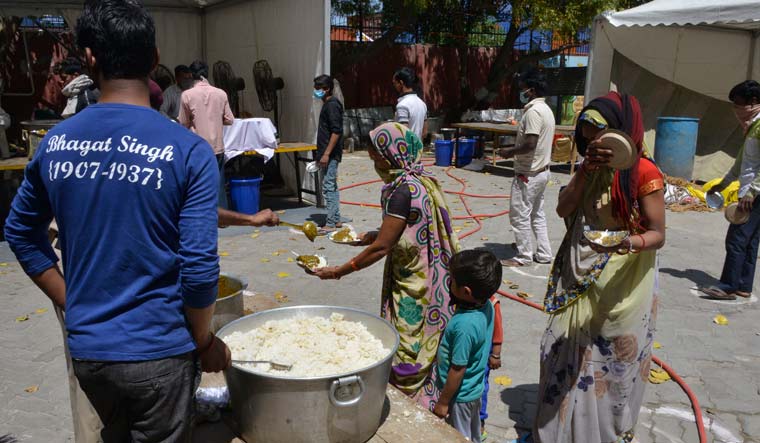The government on Friday stepped up its efforts to contain the novel coronavirus spread and initiated rapid tests in areas identified as hotspots of the deadly virus infection. More than 8,000 samples were tested on Friday—the highest in a single day.
The number of confirmed cases reported by states rose by over 500 to cross 3,000 with at least 90 dead.
The Union Home Ministry maintained that the situation is still under control despite a steep rise in the number of positive cases and deaths which, it said, is due to the Tablighi Jamaat's religious gathering in Delhi. Home Ministry Joint Secretary Lav Agarwal said the tally has not risen sharply otherwise due to the lockdown and the government's efforts to promote social distancing. According to the ministry, at least 647 cases reported in the last two days are linked to the Jamaat congregation.
Delhi, Tamil Nadu and Maharashtra reported maximum number of new cases, while fresh deaths were reported from Andhra Pradesh, Gujarat and Himachal Pradesh among others.
The Indian Council of Medical Research (ICMR) has recommended use of a rapid antibody test in the coronavirus hotspots. An official of the agency said 182 labs across the country are functional now for COVID-19 diagnosis, out of which 130 are government labs. He also said that around 8,000 samples were tested for COVID-19 in the last 24 hours.
The government has asserted there is no shortage of medical supplies in the country. It has also placed orders to procure over 10 crore hydroxychloroquine tablets, which the ICMR has recommended to be used as a preventive medication for those involved in the care of suspected or confirmed cases of the coronavirus.
The home ministry said it would blacklist 360 more foreigners who have gone to their native places after taking part in Tablighi Jamaat congregation. The ministry had earlier blacklisted 960 foreigners, present in India on tourist visas, for flouting visa norms and attending the religious congregation.
President Ram Nath Kovind said that gathering of migrant workers and Tablighi Jamaat congregation in Delhi caused a setback to the efforts to mitigate the spread of COVID-19. In his second communication with Governors, Lieutenant Governors (LGs) and Administrators, the President emphasized the need to ensure that no one remains hungry during the 21-day lockdown that will continue till April 14.
Meanwhile, the Centre asked states and Union territories to ensure smooth harvesting and sowing operations, saying agricultural activities were exempted from the 21-day lockdown enforced to combat coronavirus.
In a separate order, the home ministry also allowed opening of shops dealing in agricultural machinery and its spare parts, truck repair shops along highways, preferably in petrol pumps, and the tea industry, including plantations with a maximum of 50 per cent of workers, during the lockdown period.
After nine days of the 21-day nationwide lockdown, Prime Minister Narendra Modi released a video message, in which he asked people to continue following social distancing and stay indoors, as he urged everyone to switch off the lights at their homes and light up lamps, candles or mobile phone torches for nine minutes at 9 pm on April 5 to display the country's "collective resolve" to defeat coronavirus.
There have been indications that the lockdown would be eased in a phased manner after the 21-day period ends on April 14.
Union Home Minister Amit Shah on Friday approved release of Rs 11,092 crore to all states under the State Disaster Risk Management Fund (SDRMF) for setting up quarantine facilities and arranging other facilities for checking the spread of coronavirus.
The home ministry said the fund has been approved following assurance given by Prime Minister Narendra Modi to chief ministers during his video conference on Thursday.
The World Bank has announced an emergency funding of USD 1 billion for India to help it tackle the coronavirus pandemic.


